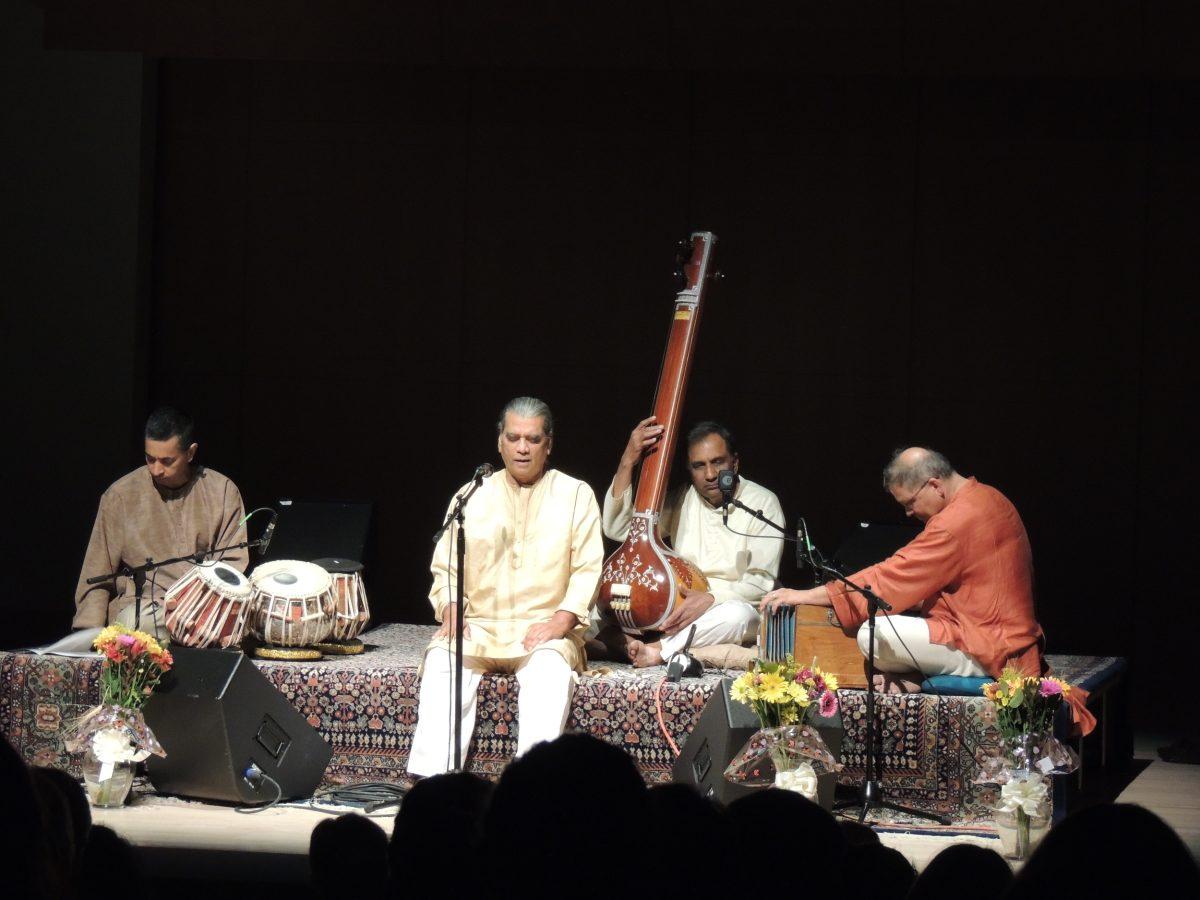People flocked to Sonoma State University’s Schroeder Hall on Saturday night to embark on a musical journey through classic Indian culture. Laxmi G. Tewari, who holds a doctorate in ethnomusicology, led the audience on that journey with his supporting artists and the power of his voice.
Tewari, born in 1938 in northern India, is one of the leading Indian Classical Hindustani vocalists in the world. He studied extensively at the Banaras Hindu University in India and earned his doctor of music degree in 1967. He then moved to the U.S. to pursue education opportunities within his field and received his doctorate in 1974.
Since then he has travelled the world studying the traditional folk music of India and Turkey, produced multiple recordings of his own music, published several books highlighting Indian culture and become a renowned ethnomusicology professor at SSU.
The seats of Schroeder Hall were filled with SSU students and general fans of cultural Indian music. Tewari’s reputation was reflected in the eruption of applause that followed him and his supporting artists’ appearance on stage. Vivek Datar was on the harmonium, Ravi Gutala played the tablas and Anirudh Vaze played the tambura and provided supporting vocals. They all settled themselves on a raised platform in the middle of the stage while Tewari turned to the audience and jokingly said, “I will sit here,” while motioning to a seat offstage.
As the supporting artists tuned their instruments, Dr. Tewari took a seat at the edge of the platform, closed his eyes, raised joined hands to his forehead in gratitude and began to sing. His soothing voice combined with the soft instrumentation created a peaceful atmosphere in the concert hall. The audience seemed mesmerized by the Classical Hindustani music, as all eyes were fixed on Tewari and each song was broken only by a pause for applause.
The performance was done in three different pieces of music; the first titled “Raga Samesvari,” a world-renowned rendition created by one of the Indian artists Tewari studied with in India. The concert program outlined each number and even provided an English translation of the words Tewari was singing. The images presented were poetic and beautiful, even in English: “Awake, awake of my mind. Night has passed. Now think about the future. Tidy your garden clean; plant fragrant fruits and flowers.”
The four artists performed with eyes closed or downcast upon their instruments a majority of the time, but the occasional smile would break through and sheer joy would add to the musical experience. As the final song swelled to an end, Tewari graciously held his hands to his forehead once again as members of the audience were brought to their feet with cheers and applause.
To conclude his concert, Tewari asked the audience to stay and add applause as he gave each of his supporting artists a bouquet of flowers, which was returned with a bouquet for himself. Tewari smiled, thanked the audience in general, then disappeared offstage to greet and personally thank each person at the exit door for supporting him and his music that night.



































